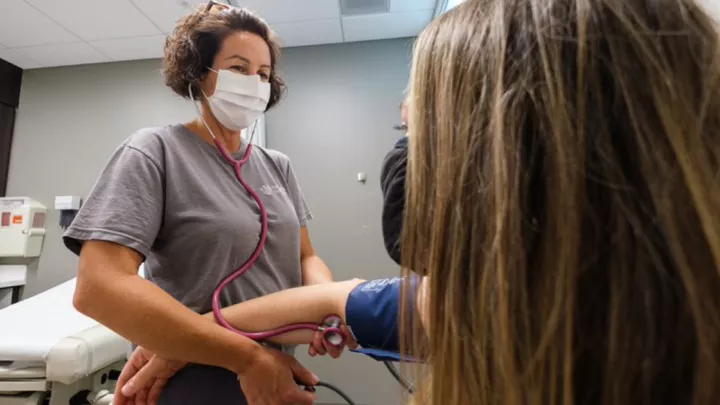Powering up a lung cancer patient's immune cells

Lung cancer is by far the most common cause of cancer death. Because more than half of people with lung cancer die within a year of their diagnoses, Nebraska Medicine is committed to early detection and new therapies.
University of Nebraska Medical Center researcher and medical oncologist Apar Kishor Ganti, MD, is pioneering a clinical trial using a first-of-its-kind experimental therapy for lung cancer. Called immunotherapy, the research modifies the body's own cancer-fighting immune cells.
Here's how it works. Cancer surgeons remove a small sample of the participant's tumor. The tumor contains the patient's immune cells, called tumor-infiltrating lymphocytes (TIL), that can be activated to fight the cancer. Those cells are processed and multiplied so it's almost like giving the immune cells jetpacks and armor while multiplying the fighting force a hundredfold.
Dr. Ganti's team then injects the immune cells back into the patient along with a medicine called IL2. "IL2 will rev up the immune system and make the immune cells more active," says Dr. Ganti.
The hope is that the powered-up immune cells will seek out and destroy the cancerous tumor – wherever it is in the body.
This clinical trial is only for people who haven't responded well to standard, approved treatments for lung cancer, which include chemotherapy, radiation and surgery. "So far, standard treatments haven't been successful for this type of lung cancer," explains Dr. Ganti. "We are studying if the power of immunotherapy can kill these tumors."
You may have heard of a similar treatment called chimeric antigen receptor (CAR) T-cell therapy, an immunotherapy approved by the Food and Drug Administration (FDA) for lymphoma, leukemia and multiple myeloma. Nebraska Medicine and University of Nebraska Medical Center were one of the first centers in the Midwest to study CAR T-cell immunotherapy in clinical trials. No cellular immunotherapy has yet been FDA approved for lung cancer.
Lung cancer is responsible for a quarter of all cancer deaths worldwide. Dr. Ganti explains that 20% of all lung cancers are in people who never smoked a day in their lives. "A risk factor of lung cancer is having lungs," he says. "Anyone can get lung cancer. I treat a fair number of lung cancer patients who have never touched or been around cigarettes their entire lives."
Unfortunately, most lung cancers are diagnosed after the cancer has spread outside the lungs. Catching lung cancer early – before it spreads – means a better chance of survival. Dr. Ganti urges lung cancer screenings for people at highest risk, including smokers, former smokers and people ages 55 to 74.
This Phase 2 clinical trial is recruiting people who have:
- Metastatic non-small-cell lung cancer, with no mutations
- Received standard lung cancer treatments
- Sufficient health to undergo surgery and experimental treatments
For more information, email Research Nurse Coordinator Kimberly Shields, RN, BSN, at kimberly.shields@unmc.edu.
IRB number: 0459-21-CB.
ClinicalTrials.gov Identifier: NCT04614103.






